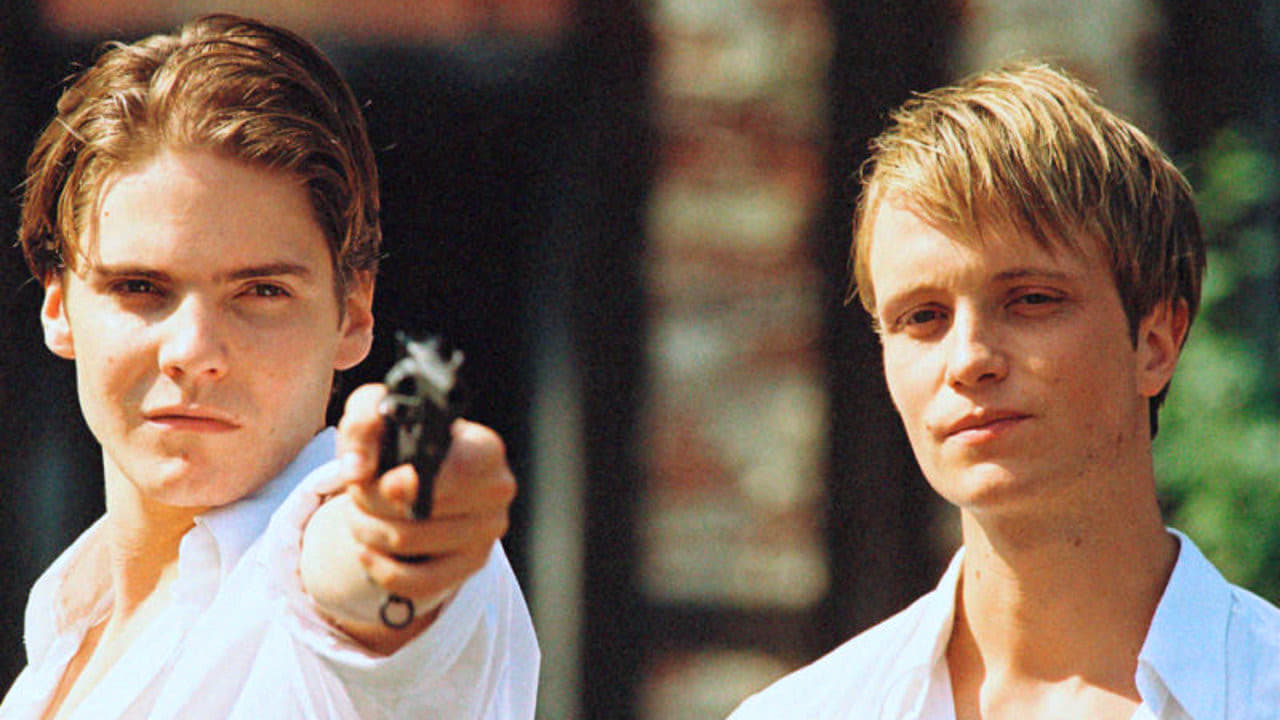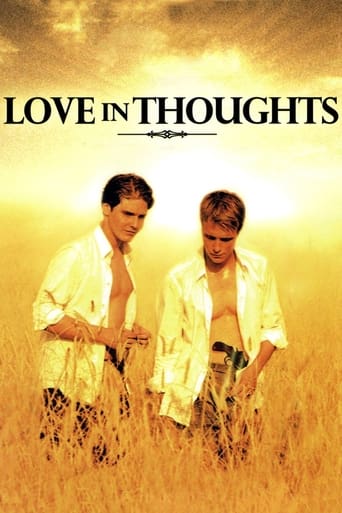

Not even bad in a good way
... View MoreA Major Disappointment
... View MoreThe story, direction, characters, and writing/dialogue is akin to taking a tranquilizer shot to the neck, but everything else was so well done.
... View MoreThe tone of this movie is interesting -- the stakes are both dramatic and high, but it's balanced with a lot of fun, tongue and cheek dialogue.
... View MoreIn Weimar Germany, school friends Paul and Günther travel to Günther's parents' summer house outside Berlin, full of plans for a drink-fuelled weekend of hedonism. Joining Günther's sister Hilde, a cocktail of unrequited sexual desire, boredom and indolence leads to tragedy.Beautifully filmed and superbly acted film in the traditions of Gatsby and Brideshead. From an adult point of view, the idea of youth asking 'is that all there is'? is at once both trite and unsettling. Cleverly, von Borries creates a world devoid of adults, where thoughts and feelings are heightened to the point of delirium, and he is well served by his three leads - Diehl and Mühe in particular are captivating as the spoiled and indulgent brother and sister. A heady exploration of privileged, destructive youth.
... View MoreI saw this film recently at the Stockholm International Film Festival of 2004. More of a coincidence than deliberately i might add, since the premises of the film did not really seem to suit me. But being a sucker for German films (also always wanting to test my failing German language skills) i decided to give it a try, and i'm quite happy that i did.Set in the decadent days of 1920's (or maybe 1930's?) Berlin, this is a story of world-weary rich teens looking for new kicks to make their life interesting. The two friends Günther and Paul go out one weekend to Günthers family's summer house, for partying and drinking. Troubled love is involved and soon things spiral out of control.I did enjoy this film quite a lot. I'm sure the slow pace will put some people off, but i had no problem with it. I found the actors to be the films most prominent strength, many of them managed great performances. Also i found the lack of sex and nudity (in a film revolving mostly around love and sex) to be liberating. It never feels like exploitation.The one thing that put me down a bit is that i don't really know what the film-makers wanted to say with this. We get a view of events happening, but where is the point of all these events? Perhaps that is for us to find out, but i still feel i would have liked some sort of closure. This is a small point though, and probably also something that won't bother most viewers. So i'm confident in recommending this to anyone interested in this kind of film. It's a nice period piece, and well worth watching if you are not put off by the somewhat slow pace.I rate it 6/10.
... View MoreFirst of all: I really enjoyed this movie. I found it great. Secondly: Yes, there are a few points you might want to critisise. The question is: Do you really care about these points? The pros definitely overweight the contras though.It was one of those movies I felt comfortable with from the first second on. It is slow, it is poetic and you have that constant feeling of melancholy and sadness surrounding you. It is kept in amazingly filmed pictures. The soundtrack simply stunned me. Not to mention the three main characters. It is nothing like any other german movie I have ever seen and I never felt like watching a german movie because it is made on an international, hollywood-like level (meant in a true positive sense!).To give any movie the label `based on a true story' is always a bit cheap. But I generously forget about that and enjoy `a story of two young men, lost in love and life'. Yes - clothes, haircuts and make ups might not (fully) correspond to what it was really like in the 1920ies. Their lifestyle shown and the emancipated way women behave, might have been to advanced for that time. But I just don't know. I could imagine wealthy people to behave like this, in the roaring Twenties, after World War I.If you like slow, poetic movies - you should give it a try. It very much reminded of `lost and delirious', it has got a bit of `dead poets society' and (the calm, peaceful moments in) `the thin red line'.But if you expect another of those `typical' german movies produced in the last few years (which I find great too) and which mostly have similar plots and a similar character, you might feel in the wrong spot.
... View MoreI mostly agree with the reviewer who said that this is a "bad German" film. I came to expect a lot more from Daniel Brühl and August Diehl; Good Bye Lenin, Lichter, Vaya Con Dios and Das Weiße Rauschen showed that these two can REALLY play! The film left me quite indifferent and that really should not have been the case considering the story. The characters where so flat that I didn't really bother what happened to them. I have to disagree with the above quoted review in one point though. I thought that this was wholly different from a TV production cause the cinematography was really beautiful and stylish at times.Before the main film they showed the short film "True" by Tom Tykwer and strangely enough there was much more life in the 10 minutes of that film than in the 95 minutes of Liebe in Gedanken. You really shouldn't walk out of the theatre only capable of thinking about the pre-movie...
... View More